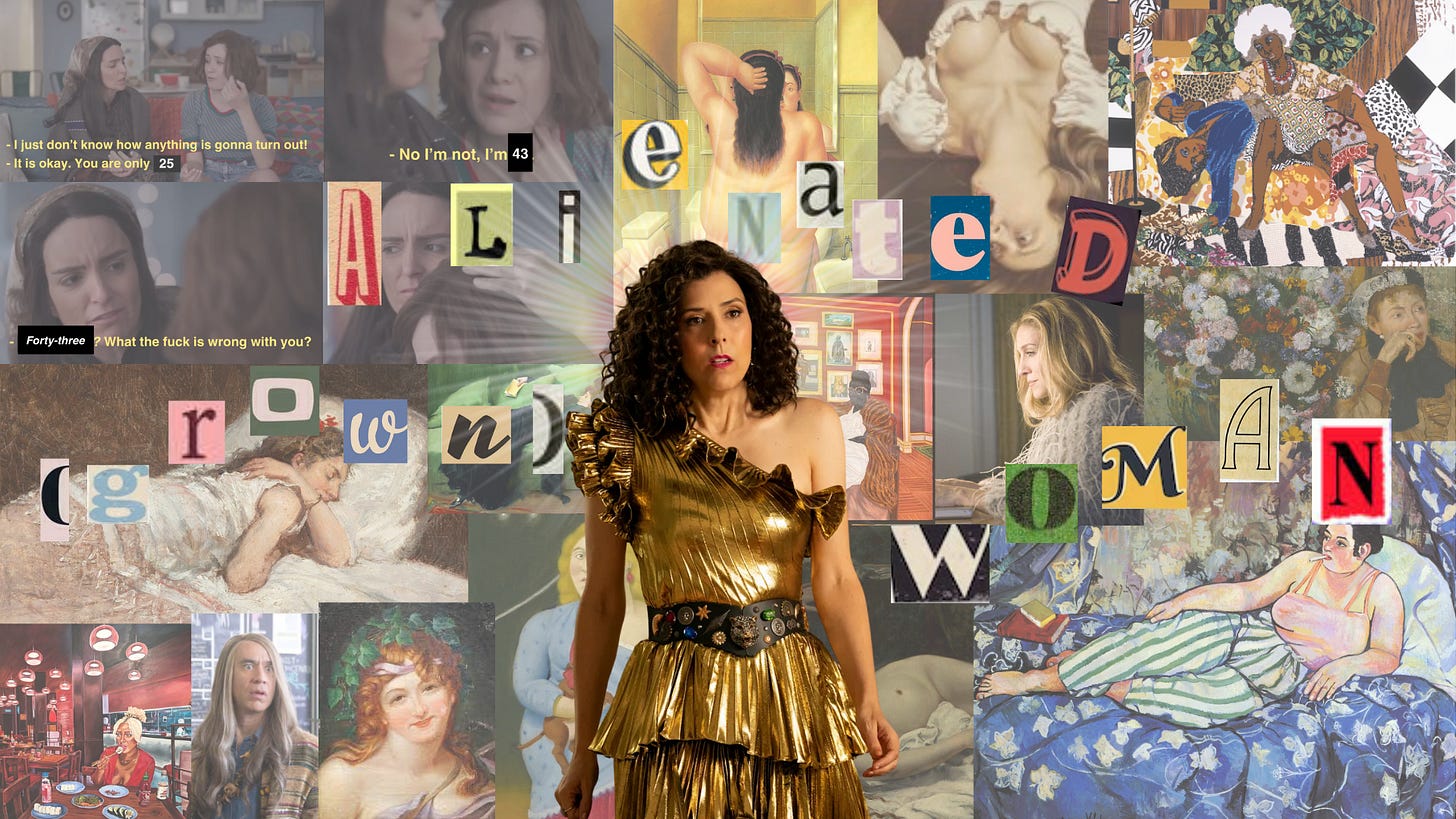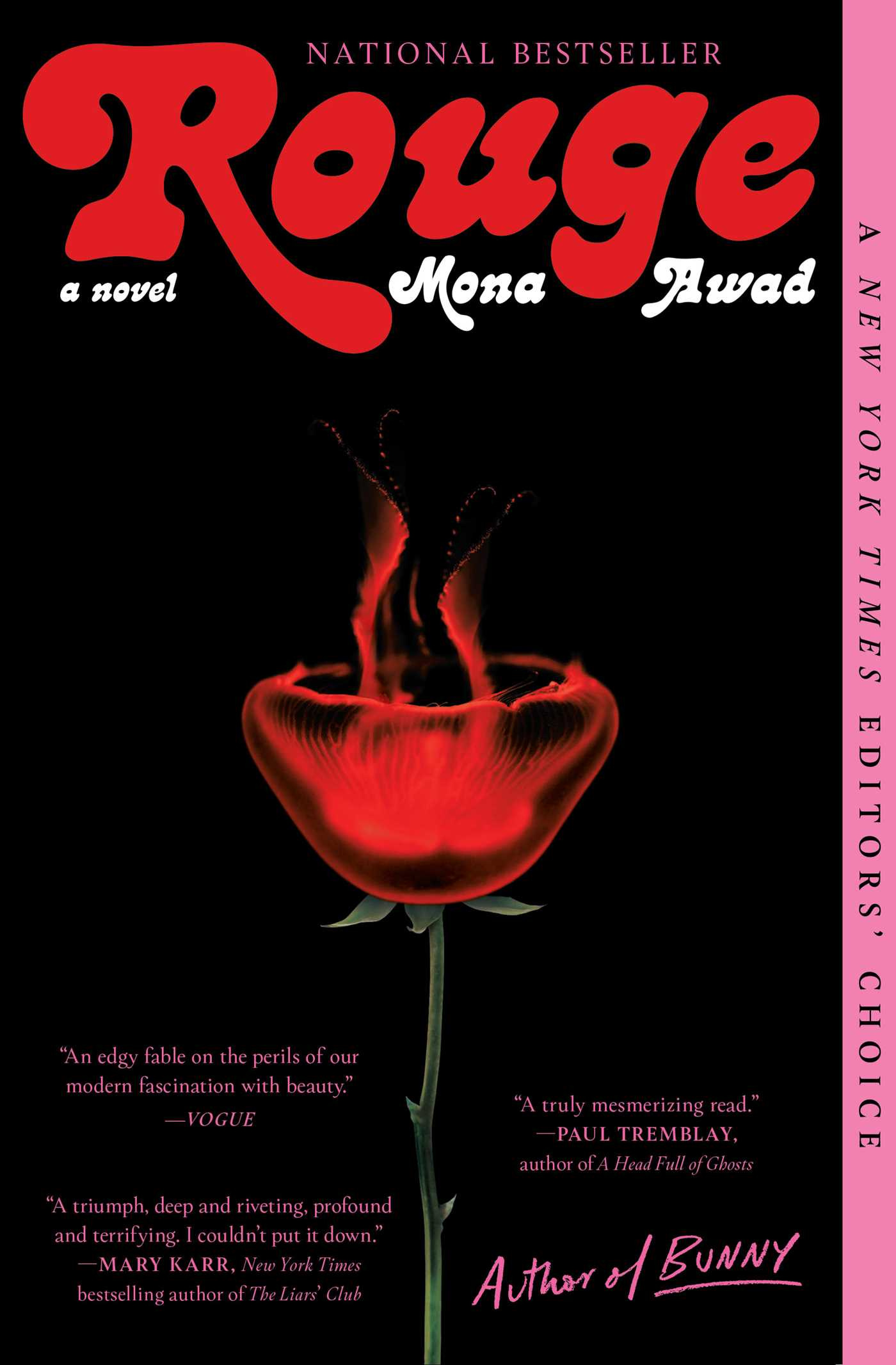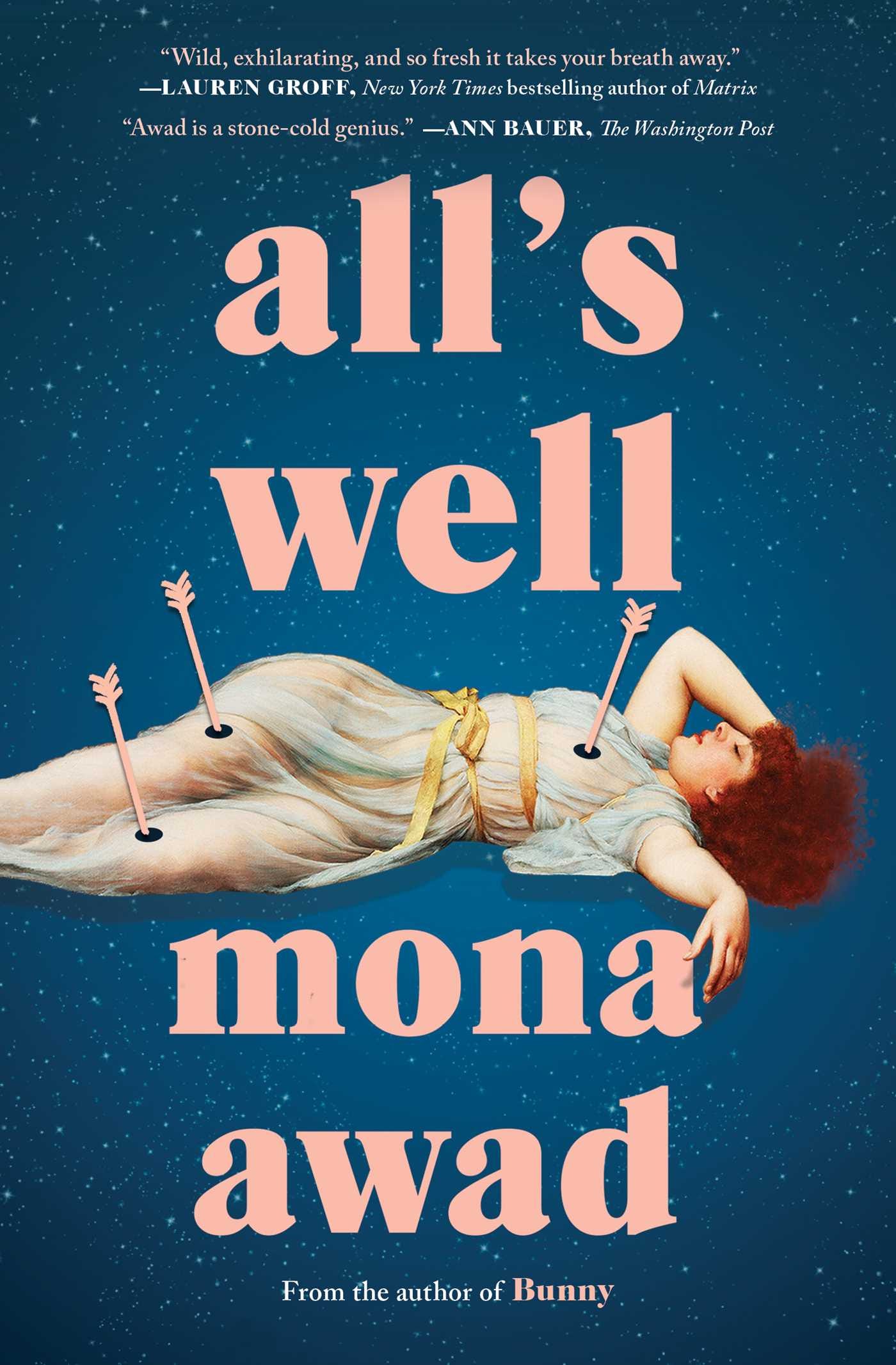A Reading List for Judy Gemstone
A eulogy (and four book recs) for TV's messiest, funniest woman.
Alienated Young Woman publishes book recommendations, reading diaries, and semi-regular reviews of fiction, TV, and film. Subscribe for free to receive new recommendations in your inbox twice a month.
For a primer on The Righteous Gemstones, start here.
It’s been one week since The Righteous Gemstones concluded its four-season run, and I’m in mourning.
Every day, I miss Judy. Edi Patterson found magic in the unhinged-but-overlooked middle child of the millionaire televangelist family with a corrupt streak. She was a tinge of Shiv Roy in circumstance, but in practice, unlike any character who came before or since. When we meet Judy, she’s nearly forty, newly motherless, and finally ready to come into her own. In the four seasons it takes her to do so, she is delightfully, beautifully unhinged, reveling in her own lack of moral compass and slowly, sometimes painfully growing up along the way.
So gleefully off the rails was Patterson as Judy that off-the-rails comic greats like Megan Mullally, Walton Goggins, and Danny McBride regularly played straight man to her delusions. In a cast of career-best comedic performances, she stood out every time. The entire series was a singular, sappy, genially ridiculous, regularly genius indictment of megachurch culture, conservatism, and the legacy of the American South, and she was its greatest creation.
There’s hardly a character who lives up to her in TV. (Who are her closest running parallels? Once upon a time, Carrie Bradshaw—and Samantha, and, for a time, Miranda—then later, maybe VEEP’s Selina Meyer, definitely The Other Two’s Brooke Dubek. Now? Yellowjackets’ Shauna Shipman? Poker Face’s Charlie Cale? Hacks’ Deborah Vance?1 In more ways than one, Judy stands alone.) But my field is literature, and I’m inclined to point out that lit fic has been trying to capture her for years.
If the literary alienated young woman is a depressed 24-year-old who spirals into unhinged, sometimes criminal delusions in the big city, Judy is the inverse in every way. Or perhaps she’s her fun-house mirror reflection. Money and—after the first season of Gemstones—career are not sources of anxiety or instability for the megachurch nepo baby. But her future is just as uncertain. She’s something else: an alienated grown woman.
The alienated grown woman is distinct from her younger counterpart, that much is clear. She’s older, of course, but her problems are also more concrete, her listlessness suddenly less acceptable. If the alienated young woman’s abject instability is on a timer, the alienated grown woman’s timer has long since gone off. She is simultaneously out of and frozen in time. It’s just part of what makes her so compelling.
There’s a way to read the alienated grown woman novel as a tragedy, a cautionary tale about a woman who puts off the clock for too long, or conversely, becomes too obsessed with the spoils of youth. But what seems to drive her story is not just her listlessness, but some outright, public-facing, irreversible moral transgression. (Judy was familiar with this pattern, having stolen money from her own church, had an extramarital affair with her guitarist, stalked her college professor, and many other, smaller transgressions.) Perhaps, then, the alienated grown woman’s transgression is her rejection of adult womanhood brought to the extreme.
The alienated grown woman makes for a profound reading experience not because she is an alienated young woman whose age has been blindly swapped out by her author, but because she has been allowed to respond to her much more established life with the same ineptitude toward responsibility and respectability. She isn’t trying to hide her lack of youth or pass for an alienated young woman—in most of these novels, we’re told her exact age early on. What makes her so captivating to read is that her author has left open the possibility that age has made her something other than a mother, a spinster, or a wise crone. That she has seen your image of what makes an “adult woman,”—marriage, children, domesticity, stability, responsibility, selflessness, wisdom—and, in one fell swoop, has cast off those expectations entirely.
The alienated grown woman is then a challenge to the assumptions we make about womanhood and what it means to age within its confines. It’s not that she’s merely cosplaying as young, pretending she has more time left to grow up—it’s that her author has stopped her clock altogether.
Judy’s television peers may be just starting to catch up with her, but in lit fic is obsessed with the alienated grown woman. From Mona Awad to Kiley Reid to Danzy Senna and Xochitl Gonzalez, the literary world is suddenly, finally invested in a 40-year-old woman going off the rails. But there’s a critical difference: Judy’s literary counterparts meet her earnestness with cynicism. It’s understandable—Judy was in for epiphanies and redemption, but they are doomed to be punished.
And oh, is the literary alienated grown woman punished. She loses her job or her money or her family or all three, accidentally joins a cult, suffers a mental break, or even experiences a spontaneous, unexplained medical meltdown. To be fair, it’s is often a natural conclusion; she cannot, and does not, expect the world to entirely ignore the damage her spiral has caused. To real life they return, with a new outlook on what really matters. Often, they just require a more divine form of intervention to find themselves on the path home. Or perhaps the universe, or their authors, are taunting them for transgressing the confines of their age.
Perhaps what makes the alienated grown woman such a gripping figure, what cements her distinctiveness, is this element of tragedy—she has a real life to fuck up. In Sylvia Plath’s The Bell Jar, in Ottessa Moshfegh’s My Year of Rest and Relaxation, in Sally Rooney’s… anything, the hurt caused by the alienated young woman is a necessary step into maturity. But here, in the narrative of the alienated grown woman, the harm, often more intentional on their part, is also more tangible and wide-reaching, the threat of consequence looming even heavier.
The possibility of sleeping for a year, or relocating to another country, or starting a new life, or even ending her current life is less appealing to her, and materially less accessible. She may be just as inept at performing grown womanhood as her younger counterpart, but that doesn’t mean she’s devoid of responsibility. She has a career to lose, a family to betray, a whole world to let down. (Even Judy had her devoted husband, BJ, and the future of her family’s megachurch empire to think about.) If and when she spirals—that irresponsibility known so well to the alienated young woman—the aftershocks are felt all around.
Then, of course, there’s Judy Gemstone. Judy, who is all spiral, all the time. Who bucks consequence, guffaws in the face of most social norms, and dishes out vulgar punchlines with Shakespearean originality. Who, most of the series, is a defiance of the very canon—Gemstones refuses to punish her. In less capable hands than Patterson’s, she could almost have been tragic in her awkwardness and grief, were she not so gleefully self-accepting.
Judy, who would not read any of these books, because she does not read fiction, but who, if she happened to stumble upon them—tucked away into BJ’s nightstand with his other keepsakes—might, for once, feel seen.
Come and Get It by Kiley Reid (G.P. Putnam’s Sons, 2024)
Above all else, one factor makes Judy an archetypal Alienated Grown Woman: she’s isolated. Not physically (in fact, she’s rarely not with her brothers, husband, and/or dad) but socially and emotionally, and certainly along gendered lines. Judy—at least until she meets a certain service animal with a troubled past—is rarely understood. She’s made sure of that. But even in her rare moments of vulnerability, we understand that the loss of her mother, her codependent nepo baby work environment, and her general lack of a social life mean that, aside from BJ, she spends most of her time a fish out of water.
There is no character quite like Judy in TV or literature, but rest assured, the 40-year-old Fish Out of Water canon is thriving. This is a core struggle for women of the genre: whether or not they are in the physical presence of friends, relatives, or spouses, they feel alone. In most cases, they would be so much better off if their parents were not estranged, otherwise absent, or altogether dead.
But instead of the evangelical megachurch where Judy schemes in her brothers’ shadows, lit fic’s protagonists prefer an even more obvious setting: a college campus. After all, where is an emotionally disregulated, socially awkward, likely divorced 40-year-old woman’s general isolation made plainer?
In Come and Get It, 38-year-old Agatha feels just as out of place arriving on a college campus as a visiting professor as the teenage protagonists of alienated young woman hallmarks like Shirley Jackson’s Hangsaman or Bronwyn Fischer’s The Adult do when they arrive as students. Of course, it doesn’t help that Agatha is recently divorced, stalled in her career, and relatively friendless to begin with.
At first, she attempts Judy’s approach, creating a facade of removal by leaning on her career prestige, musing about using her students as anthropological subjects for her next book. But Agatha hasn’t had Judy’s years of practice at pretending not to care. She can’t help but get enmeshed. So when she forms a less-than-appropriate bond with straight-laced RA Millie, their entanglement feels almost inevitable. To Agatha, Come and Get It is a story about navigating the death of her old social life while a new one takes shape—even if, to everyone else around her, it’s about her abject lack of moral compass. Perhaps there’s a bit of Judy in her yet.
Rouge by Mona Awad (Simon & Schuster, 2023)
It’s no coincidence that so many alienated grown women are stalled in settings that feel beneath them in age or status. If and when the alienated grown woman is surrounded by adults her own age—those whose lives may look more conventional than her own—she struggles to connect with them at all. (Think about Judy’s interactions with Amber Gemstone, her sister-in-law and would-be ally whom she instead attacks from their very first meeting, largely out of resentment for a woman who knows who she is, takes what she wants, and maintains a facade of presentability while doing it.) These novels do, after all, depend on their protagonists’ alienation.
Alienated grown women, or at least some small, buried part of them, are often arrested in their childhoods, usually thanks to a stilted relationship with their own mothers, once themselves alienated grown women. At 40, Judy still dresses like her own fuzzy, dated childhood memories of her mother, beloved Tammy Faye send-up Aimee-Leigh Gemstone (Jennifer Nettles). When, in her late thirties, Judy finally decides she wants to (and can) be something beyond her own father’s secretary, her first attempt to make a name for herself is… singing her mother’s greatest hits, accompanied by her same musical partner. Even years after her mother’s death, Judy still leans on her father to facilitate the parts of adulthood she can’t quite manage, even as she recognizes that doing so handicaps her potential.
Had Gemstones not been one of the greatest TV comedies of all time, had it instead taken an elevated feminist horror turn, Judy would have found herself in the same spot as Rouge’s Belle.
At 38, Belle can’t escape the memories of her 10-year-old self, haunted by the age when her relationship with her late mother first began to sour. Even her arrested development setting (not a college campus, but a dead-end job as a dress store clerk) is quite literally a reconstruction of her childhood, when she idolized the dress shop her mother owned. When her mother (known by others as beautiful and widely beloved, not unlike Aimee-Leigh) dies prematurely, the concept of navigating grief—much less adulthood—on her own is nearly too much to bear. Where else is she to turn but Rouge, the cult around the corner? And if the cult knows the exact remedy for her pain, but wants a little more than she can give, what then?
In another life, Judy may also have been a prime cult target, had she not been born into leading one. As we see again and again in every interlude episode, Judy at her most grown up is still a little girl. If the alienated grown woman finds herself unable to perform adult womanhood “correctly,” it often stems from the most obvious source.
Vladimir by Julia May Jonas (Avid, 2022)
There are two hallmarks of the alienated grown woman we haven’t yet touched, but that Judy knows all too well: she is inextricably wound up in corrupted webs of power, and she loves to operate from a weakened moral compass. It’s not uncommon for us to see her pursue a relationship with a less powerful mark, and her penchant for doing so tells us as much about her struggle for self-assertion as the alienated young woman’s inverse pattern of pursuing relationships with older men. It’s also not uncommon for us to see her go completely off the rails.
In Gemstones, these webs of power manifested in Judy’s rampant pursuit of relationships she deemed taboo, from her “no-sex affair” with her guitarist, Stephen, to her imagined affair with her married college professor (which, to be clear, was actually just stalking). She’s also undeniably drawn a fucked-up power imbalance: think BJ, who begins the series a disciple and has to work his way up to partner. In the end, it all goes back to the same original wound: she’s been sidelined within her own family, denied the power easily bestowed on her brothers.
In Vladimir, the nameless narrator is a long-tenured English professor in her late fifties, reckoning with her own power imbalances. At the start of the novel, she’s forced to navigate a semi-ostracized social status on campus after her husband, a fellow professor, is accused of sexual misconduct by former students. But there’s another storm brewing: her growing obsession with Vladimir, a young visiting professor. Not unlike most Gemstone escapades, this narrator’s budding plot is doomed to go off the rails.
As we see in Vladimir, the alienated grown woman tends to reflect back her unjust sidelining tenfold. Judy burrowed away millions from her parents’ church, Vladimir’s narrator commits several (even worse) felonies. On account of her age and gender, the world has written her off. She responds by asserting power in a way that is so far beyond the realm of acceptability that it may be entirely unforgivable. She writes off her transgressions as acts of empowerment when, truly, they’re acts of revenge.
Big Swiss by Jen Beagin (Scribner, 2022)
Vladimir’s felonies take us into the last prong of alienated grown womanhood, another Judy staple: she loves nothing more than to push the bounds of forgivability with unequivocal moral transgressions. The alienated grown woman’s existence is an active rejection of norms, one that lends her over to being called something else: the “unhinged” woman. She is daring those around her—loved ones, adversaries, her readers—to hate her. The beauty of it is that we never quite give in.
For Greta, the protagonist of Jen Beagin’s Big Swiss, it begins with a simple breach of ethics—an illicit affair with a younger woman, an act of espionage. (For Judy, it’s literally any transgression we’ve already mentioned, or a thousand other, littler shortcomings.) At the start of the novel, Greta is 45 and aimless, and, because she does not have the cushion of a millionaire Evangelical family, she’s living in a dilapidated farmhouse with her sole friend and relying on gig work transcribing sessions for a sex therapist. Then she develops an obsession with one of his clients, nicknamed “Big Swiss,” and languishing in aimlessness becomes something much darker.
Greta, whose life until this point has been messy and unfocused, but not quite harmful, cannot fathom acting on her taboo desire without going totally batshit, past the point of forgivable conduct. In fact, she can’t imagine a relationship with Big Swiss, her younger—albeit much more grown-up—counterpart that doesn’t involve tilting the scales of power by using her limited upper hand. Perhaps that—her desire to be loved and her impulse to manipulate anyone who might do so—makes her Judy’s closest literary companion. But it’s her denouement, visceral and gross and ultimately deserved, that forces a rude awakening, not that her messiness is unacceptable, but that she, like everyone, needs other people. Sometimes, only abject moral bankruptcy can elicit a true epiphany.
Honorable Mention: Two Books Judy Probably Would Not Vibe With, With Plots She Would Get Herself Into
All’s Well by Mona Awad (Simon & Schuster, 2020)
In All’s Well, Miranda Fitch is a 37-year-old theatre professor whose life has reached its messiest point—at least, she thinks it has. She’s suffering from chronic, debilitating pain, at war with her colleagues in the drama department, and the victim of a growing coup from entitled students. Then, by chance, a possibly supernatural encounter with three mysterious figures leaves her with the opportunity to start again. But the cost is steep, at least for the people in her orbit. Does getting what she believes she deserves warrant dismantling the world around her? Does Miranda care about that world to begin with?
Disorientation by Elaine Hsieh Chou (Penguin, 2022)
Ingrid Yang isn’t quite an alienated grown woman—she’s only 29, after all—but she’s barreling toward the label, and she’s not quite sure how to get off the train. She’s in the eighth year of a PhD she barely wants, locked into a Chinese Studies dissertation for reasons more tied to academic tokenization than true passion. The same can be said for her relationship with Stephen, her milquetoast, vaguely fetishistic boyfriend who, if not quite romantic, is at least the easiest option.
But like Miranda Fitch, she’s in for a chance encounter. When a cryptic note from her dissertation subject, iconic Chinese-American poet Xiao-Wen Chou, appears in her university’s archives, Ingrid is in for more than one kind of discovery. Suddenly, her last semester in academia isn’t just long nights of research—it’s a surreal, sometimes life-or-death journey through espionage, fetishistic advisors, performative “allies,” and school-wide conspiracies. It’s an all-out brawl to find her long-lost autonomy before it’s too late. A must-read for anyone who has ever been kidnapped in a dispute between the warring sects of their family’s money-laundering megachurch.
More Like This: Colored Television by Danzy Senna (Riverhead, 2024), Olga Dies Dreaming by Xochitl Gonzalez (Flatiron, 2022)
Thanks for reading Alienated Young Woman! If you’ve enjoyed this post, consider sharing it on your socials. Subscribers receive two free reading guides per month.
The correct answer—the closest we ever came to Judy before Judy—is Portlandia's Candace.













